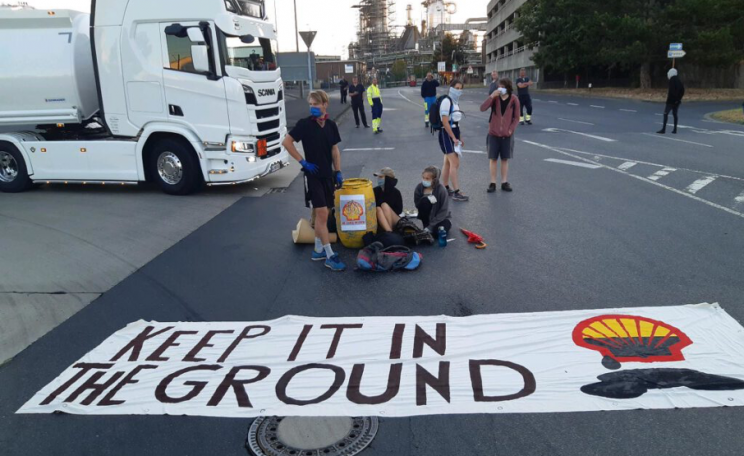Corruption flourishes because of a lack of transparency.
Tens of thousands of Iraqis took to the streets in October 2019 for what was arguably our country’s biggest ever grassroots socio-political mobilisation.
The protests were borne of years of frustration and despair: at rising poverty and unemployment, at our decaying health and education systems, at falling literacy rates, and the erosion of women’s rights.
The protestors’ anger was intensified by a bitter paradox. How could living standards be so dire in a nation awash with oil money? And how could the government presiding over the world’s fifth largest oil reserves fail so dismally to provide for its people?
Corruption
After more than five months, the demonstrations abruptly halted with the outbreak of Covid-19.
Since then, a new government was formed, and the pandemic tightened the pressure on ordinary Iraqis’ lives. Oil prices fell off a cliff, peoples’ incomes evaporated, as hundreds of thousands of workers lost their jobs.
But protestors re-emerged in Baghdad, as well as in Najaf, Al-Muthana and Dhi Qar last month, just as coronavirus infections soared. Their re-appearance demonstrates that the anguish that first drove people to the streets is greater than ever. It also foreshadows greater turmoil for Iraq, unless the causes behind the protests are addressed.
Corruption flourishes because of a lack of transparency.
Principal among these causes is ending the corruption that scars our nation. Iraq is one of the world’s most corrupt states, ranking 162 out of 180 nations according to Transparency International’s Corruption Perceptions Index (CPI) - and the oil sector is its engine.
Oil quotas have been awarded on sectarian and partisan lines for years, allowing elites to keep power through patronage. Vast sums of oil revenues are wasted on projects with no public benefit, and oil smuggling is an industry in itself, haemorrhaging billions from the public purse.
Transition
Corruption flourishes because of a lack of transparency.
The Open Budget Survey, which assesses levels of transparency, oversight and public participation in governments’ budgets around the world, found that Iraq scored just 3 out of 100 for the budgetary transparency: substantially less than the global average score of 42. In key aspects, the amount of publicly available information in Iraq has diminished in recent years.
The endemic corruption, poor governance and minimal transparency that enable a small segment of Iraqi society to enjoy obscene riches at the expense of the majority flies in the face of Iraq’s constitution. Article 111 states: “oil and gas are owned by all the people of Iraq in all regions and governorates”.
Yet if we are to equitably distribute our natural wealth, and lift the Iraqi people out of poverty, ending corruption is only part of the battle.
Diversifying our economy and transitioning to clean energy is also vital. Oil provides 90 percent of the Iraqi government’s revenue, and weaning ourselves off our dependency on it is essential for a healthy planet, as well as protecting our economy from the kind of shockwaves oil prices have endured this year, and the market’s inherent volatility.
Listen
The Iraq Energy Institute estimated that our government needs about $5 billion (US dollars) a month from oil revenues just to cover its payroll. When oil prices collapsed in March, there was a monthly fiscal deficit of around $2bn.
To secure our children’s future, the government must urgently invest Iraq’s oil revenues in other sectors of our economy, including tourism, agriculture, and industry.
If not, I fear that the recently revived protests - which had already seen more than 700 deaths and thousands of people injured and arrested - will be the prelude to greater unrest.
Jeanine Hennis-Plasschaert, the United Nations’ Special Representative for Iraq, said at the time, that Iraqis paid “an unthinkable price to get their voices heard”.
It’s not too late for them to be listened to.
This Author
Adnan Bahiya is the national coordinator of the Publish What You Pay (PWYP) coalition in Iraq, the global movement working to ensure that revenues from oil, gas and mining are used to drive development. He also sits on PWYP’s global council.




